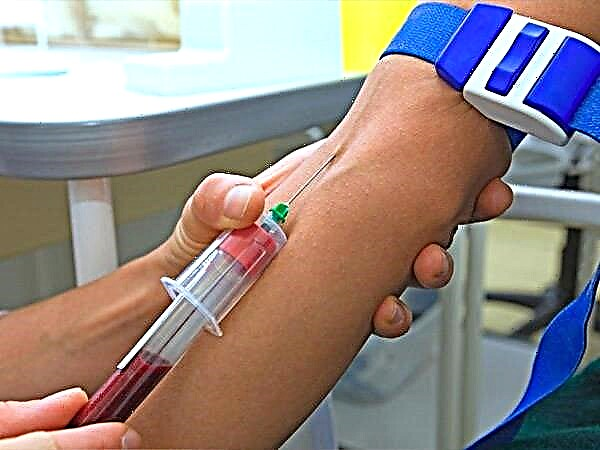Indicates the presence of infections and diseases, an increased leukocyte count in the feces in a child. It is very important to monitor deviations from the norm, as they indicate negative processes in the body that need to be eliminated (first of all, in the digestive system). Parents should know in advance why changes in the state of health occur (nausea, vomiting, diarrhea, rashes), how manifestations can be visually detected.

Monitoring your baby will help you understand if he needs quick treatment.
Why are leukocytes found?
White blood cells in feces can be examined using a special study - coprogram. The main function and task of leukocytes is to protect the body from various infections and inflammations.
Dr. Komarovsky tells in detail about the reasons for their increased appearance. In his opinion, the main factor influencing the detection is the presence of an intestinal infection. It can be at different stages of development, so the final diagnosis is made only after additional examination and a series of tests.
In the case when a baby or toddler does not change his usual way of life for up to a year (he sleeps and plays well, remains mobile and interested in what is happening), then in 90% of cases he has no pronounced problems. Parents should show attention if the child's stool changes color to dark. This may indicate bleeding. The symptom indicates difficulties in the digestive tract. It is also one of the signs of intestinal obstruction or trauma. In these cases, there is a change in the baby's well-being.
Important! Be sure to contact your pediatrician for additional advice.
Rates and reasons for the increase
White blood cells, or leukocytes, in the stool of a healthy infant may be present in a single copy. Up to 8-10 pieces can be in the field of visibility, then we can say that the norm is not violated. Experts point out that the main cause of the problem is infection or inflammation.
Also, in children who are one month old (and up to one year old), an increase may be associated with the following changes in the body:
- undeveloped or impaired metabolic process;
- drug treatment;
- changing the diet of a nursing mother - such foods as chocolate, fatty foods, canned food and smoked meats negatively affect the baby;
- intestinal trauma;
- natural feeding.
Doctors note that the artificial type of nutrition shows the norm for leukocytes more often than HS.
Important! A negative analysis result is not a cause for panic. It is recommended to undergo diagnostics and repeat the study, since among the reasons for exceeding the norm for leukocytes there is a specialist's error when taking samples.
Feces collection rules (if carried out by parents):
- urine should not be allowed to enter (even a small amount can spoil future performance, and the result will become incorrect);
- contact with water or household chemicals is not allowed (also due to distortion of results);
- the collection container must be sterile (it is recommended to choose glass or plastic so that the walls do not soften);
- the volume should ideally be 15-20 g.
Stores are allowed to be stored for no more than 10 hours in a cold place. In a child over one year old, physical overstrain or stressful conditions can be a possible reason for an increase in performance.
Symptoms of the problem
If the indicator is high, then you need to look at the condition of the child. Additional symptoms and manifestations indicate the problem. In a baby aged 0-2 years, a deviation from the norm upwards may mean the following:
- there is an intussusception of the intestine (one part of it falls on another);
- there is an infection;
- there is an inflammatory process (the more white blood cells, the more pronounced it is).
You need to pay attention to the following symptoms:
- lethargic state;
- drowsiness;
- whining and whining (there are no reasons that would clarify the situation right away);
- dry mouth and lips (characteristic cracks are observed);
- temperature above 37 degrees;
- crying is not accompanied by tears (newborn whimpers);
- vomiting appears;
- little saliva is produced in the mouth;
- there was or increased diarrhea with a pungent odor (repeats up to 12 times in 24 hours);
- after pressing or light pinching, the skin does not return to its previous state (does not even out).
Visually, the infant looks very weak.
Important! Another symptom appears that indicates the development of a pathological condition - the child's urine darkens, acquires an unpleasant odor.

White blood cells eliminate foreign bodies such as infections and inflammation
What the elevated level says
If the leukocytes in the fecal mucus in the baby are increased, then such a manifestation may indicate the following health problems:
- various kinds of infections;
- inflammatory processes affecting the rectum, colon or small intestine;
- prolonged constipation;
- violation of the intestinal microflora (dysbiosis);
- ulcerative, spastic, or allergic colitis.
Also, an increase in white blood cell counts may indicate the consequences of dysentery. In each of the listed cases, a doctor's supervision and a special course of treatment are assumed.

Child behavior will allow you to monitor his health
Analysis and diagnosis of diseases
The revealed leukocytes in the coprogram of the baby require additional diagnostics. If the reaction to the initial test is positive, then the test will need to be repeated. You can do this at home. For this, special diagnostic test strips are used. For the procedure, you will need to prepare feces. If newborns use diapers, then the mass for research can be taken from them (without urine). Glass or plastic containers are used as containers.
You will need to add 2-4 teaspoons of distilled water or saline to the contents. You can add up to 8 tsp to achieve a sour cream consistency. Mix the resulting composition with a glass rod. In the next step, 1 drop of the mixture should be applied to the edge of the test strip and the time recorded. After the expiration of the period specified in the instructions, in order to find out the result, you will need to use the value from the scale (attached to the user manual). If the result is positive, it is recommended to see a doctor.
Leukocytes can be present in the coprogram performed in a child for a variety of reasons. Parents need to increase their vigilance, even if the newborn baby has not changed its behavior. In the presence of characteristic negative symptoms, medical supervision becomes a necessity. Increased leukocytes in feces in a child is a symptom that requires attention.



